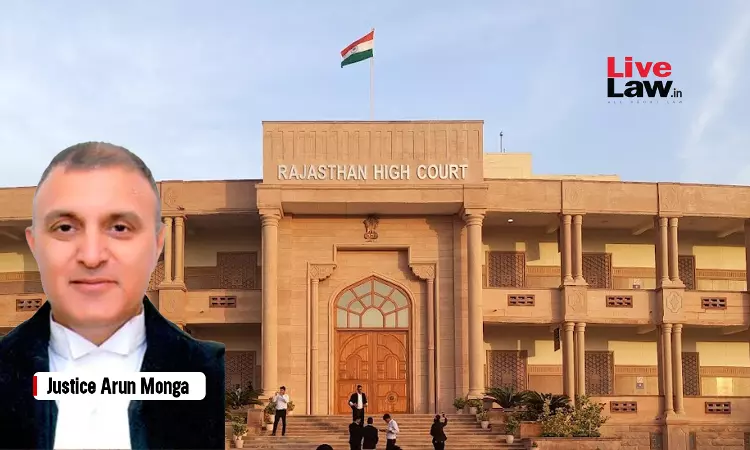- Home
- /
- High Courts
- /
- Rajasthan High Court
- /
- Issue Of Non-Joinder In Amendment...
Issue Of Non-Joinder In Amendment To Written Statement Holds No Weight Unless Party Is Indispensable Under Order 1 Rule 10 CPC: Rajasthan HC
Nupur Agrawal
7 Jun 2025 7:30 PM IST
While upholding Trial Court's order of dismissing application to amend the written statement, Rajasthan High Court held that the plaintiff being the master of the lis could not be compelled to include or exclude particular individuals. Hence, the issue of non-joinder in the amendment did not hold any weight unless the party was indispensable under Order 1 Rule 10, CPC.“…plaintiff is...
While upholding Trial Court's order of dismissing application to amend the written statement, Rajasthan High Court held that the plaintiff being the master of the lis could not be compelled to include or exclude particular individuals. Hence, the issue of non-joinder in the amendment did not hold any weight unless the party was indispensable under Order 1 Rule 10, CPC.
“…plaintiff is the master of the lis and it is for him to see as to whom he wants to sue or proceed against and the defendant cannot decide it on behalf of the plaintiff. The plaintiff has the discretion to choose the parties to be impleaded in a suit. The defendant cannot compel the plaintiff to include or exclude particular individuals.”
The bench of Justice Arun Monga was hearing a petition filed against the order of the Trial Court wherein the application filed by the defendant under Order 6 Rule 17, CPC, seeking amendment of the written statement, was dismissed.
Respondent had filed a suit seeking ejectment, rent arrears and possession of a property claiming to have purchased it from wife of a person named Banshi Lal. He alleged that oral tenancy existed between him and the petitioner.
Contending the claim of the respondent, petitioner denied existence of any tenancy between him and the respondent, and challenged respondent's validity of the plaintiff's ownership. Subsequently, the petitioner filed an application to amend his written statement to reaffirm non-joinder of Banshilal by the respondent. Dismissal of this application led to filing of the petition.
After hearing the contentions, the Court highlighted that the amendment was required only for elaborating what was already stated in the written statement that the previous owner ought to have been impleaded by the respondent as a party.
It was held that the plaintiff was the master of the lis who could decide whom he wants to sue, and hence, could not be compelled to include or exclude particular individuals. It was further opined that the issue of non-joinder in the amendment did not hold any weight unless the party was indispensable under Order I Rule 10, CPC that concerns the addition, substitution, and removal of parties in a civil suit.
Furthermore, the Court opined that such an application should have been filed at the threshold of the suit and not when the entire trial was almost at the culmination stage.
The Court also referred to the proviso to Order 6 Rule 17, CPC, to highlight that no amendment should be allowed after the trial had commenced unless it was demonstrated that despite due-diligence, the matter could not have been raised earlier.
Terming the amendment application by the petitioner as a delay tactic, the petition was dismissed.
Title: Shrilal v Smt. Bhagwati Devi
Citation: 2025 LiveLaw (Raj) 202



